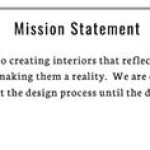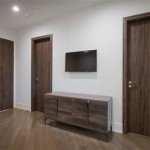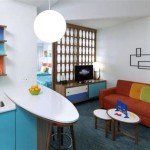Color Board Interior Design: A Powerful Tool for Visualizing Your Dream Space
Color is a fundamental element in interior design, shaping the mood, atmosphere, and overall aesthetic of a space. Selecting the right colors can be a daunting task, given the vast spectrum of possibilities and the subjective nature of personal preferences. To navigate this process with confidence, interior designers and homeowners alike rely on a powerful tool: the color board. This article explores the concept of color boards, their purpose, and the various ways they can be utilized to achieve harmonious and visually compelling interior design outcomes.
What is a Color Board?
A color board, also known as a mood board, is a visual representation of a design concept. It typically consists of a collection of colors, textures, patterns, and images that collectively communicate a desired aesthetic. This curated assortment of elements serves as a visual guide, helping to inform the selection of paint colors, furniture, fabrics, and other decorative elements for a particular space.
Benefits of Using a Color Board in Interior Design
Color boards offer numerous benefits throughout the interior design process. They aid in:
- Visualizing and Communicating the Design Vision: A well-crafted color board provides a clear and concise visual representation of the intended design direction, facilitating effective communication between designers and clients.
- Experimenting with Color Combinations: Color boards allow for experimentation with different color palettes, examining how various hues interact and complement each other, and exploring the overall impact on the space.
- Ensuring Color Harmony and Cohesion: Color boards help to create a cohesive design by ensuring that the chosen colors work together harmoniously, avoiding jarring clashes and maintaining a balanced aesthetic.
- Creating a Mood and Atmosphere: Colors evoke specific emotions and sensations. Color boards aid in selecting hues that will contribute to the desired mood or atmosphere, whether it be calm and tranquil, energetic and vibrant, or sophisticated and elegant.
- Guiding Material and Furniture Selection: Color boards provide a reference point for selecting materials and furniture that align with the chosen color palette and style. This ensures that the chosen elements complement the overall design concept.
Creating an Effective Color Board
The effectiveness of a color board depends on its careful construction. Here are some key considerations for creating a successful color board:
- Define the Design Goals: Before creating a color board, it is essential to establish clear design goals. This includes identifying the desired style, mood, and function of the space.
- Gather Inspiration: Collect images, fabric swatches, paint samples, and other materials that resonate with the desired aesthetic. This can include photographs, magazine clippings, or online resources.
- Organize and Arrange the Elements: Arrange the gathered elements on a surface or digital platform, grouping similar colors, textures, and patterns. This visual arrangement will help to reveal the overall color palette and style direction.
- Consider Lighting: The way light interacts with colors can significantly impact their appearance. It is helpful to consider how the chosen colors will look in different lighting conditions.
- Refine and Adjust: Once the initial color board is created, it is important to continuously refine and adjust the elements based on feedback and further considerations. This iterative process ensures that the final color board accurately reflects the design vision.
Types of Color Boards
Color boards can be created in various ways, depending on the resources and preferences of the designer. Some common approaches include:
- Physical Color Boards: These boards are created using physical materials such as fabric swatches, paint chips, and magazine clippings, arranged on a board or cork surface.
- Digital Color Boards: With the help of software and online tools, digital color boards can be created by combining images, colors, and textures in a virtual environment. Online platforms like Pinterest and Canva offer convenient and user-friendly options for creating digital mood boards.
- Hybrid Approach: Combining elements of physical and digital color boards can create a more comprehensive and dynamic representation of the design concept. This approach allows for the tactile experience of physical materials while leveraging the flexibility and adaptability of digital tools.
Color boards are an indispensable tool in interior design, empowering designers and homeowners to visualize their dream spaces, experiment with color palettes, and achieve harmonious and visually compelling results. By carefully considering the design goals, gathering inspiration, and organizing the elements effectively, color boards provide a powerful foundation for creating truly exceptional interiors.

Interior Design Service Bespoke Mood Board Color Palette Digital

How To Create An Interior Design Mood Board Vevano

How To Create A Mood Board For Interior Design Projects

How To Make An Interior Design Mood Board Super Easy

How To Make An Interior Design Color Board

Neutral Living Room Mood Board Virtual Interior Design Home Styling Staging Paint Color Chart Pable

Sample Color Board Materials Interior Design Presentation Boards

Point Counterpoint Color Dichotomy In Interior Design 2024 01 18 Floor Trends Installation

Before After Inviting Neutral Color Palette Interior Design

Editable Interior Design Mood Board Template Bundle Kitchen Designer Color Palette Israel








